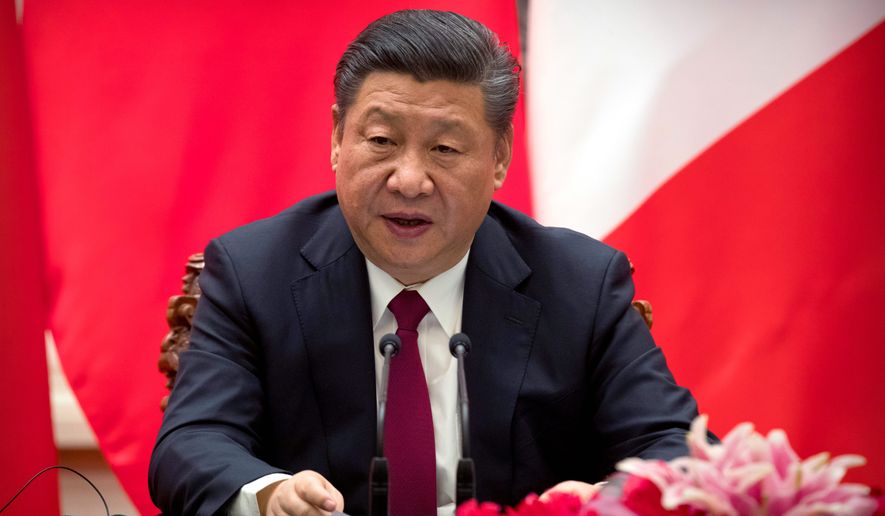By L. Todd Wood
 As the trade wars with Beijing slog on, we’re learning that China may have infected thousands of American computers in business and in government with tiny microchips in a massive exercise in espionage. As with past episodes of total war, we are in the beginning stages of an all-encompassing conflict with China, waged with economic weapons that can be just as powerful as bullets and bombs when deployed properly. Chinaunderstands how to wage economic warfare very well and has had lots of practice — largely uncontested by the U.S. government — over the last few decades. America is starting to wake up, but it may be too late.
As the trade wars with Beijing slog on, we’re learning that China may have infected thousands of American computers in business and in government with tiny microchips in a massive exercise in espionage. As with past episodes of total war, we are in the beginning stages of an all-encompassing conflict with China, waged with economic weapons that can be just as powerful as bullets and bombs when deployed properly. Chinaunderstands how to wage economic warfare very well and has had lots of practice — largely uncontested by the U.S. government — over the last few decades. America is starting to wake up, but it may be too late.
I wrote a thriller called “Currency” several years ago which outlined the consequences to a society of overwhelming debt and financial irresponsibility. This scenario has repeated itself over the millennia, from the Babylonians to the Romans, the Spanish to the English, and more recently in Germany’s Weimar Republic. The U.S. has been blindly racing down the same path in recent decades. For years, China has been nudging us to the precipice, exploiting our ignorance and inability to admit our fiscal stupidity.
China, Russia, and Iran today are all actively attempting to undercut the U.S. dollar as the world’s reserve currency. The reason the Federal Reserve has been able to engage in “quantitative easing” — in banana republics, they call it printing money — is that other nations have to hold and use dollars to function in the global market. That may be changing. If OPEC and other countries suddenly don’t have to use the greenback for oil sales and other financial transactions, then the demand for dollars will dry up. The inevitable result: the value of the dollar falls and America’s debts become that much harder to repay.
This would not be an existential problem if the U.S. government’s accounts weren’t so badly overdrawn — or, in other words, insolvent. We owe over $20 trillion in sovereign debt, and when you combine that with our municipal, corporate and other liabilities, well, Houston, we have a $100 trillion problem.
Take it from an ex-bond trader, when the market realizes that a bond issuer no longer has the ability or the will to pay back the interest, much less the principal, on what it owes, then the market will take control of the long-term interest market from the Feds and — presto — interest rate shock!
Want some context? Think Venezuela, on steroids.
This is what China is banking on. This is why Russia is buying gold, lots of it. This is why Iran is trying to work around the dollar (and around U.S. sanctions) in its international trade. We have given our enemies a way to defeat us, and we have yet to even admit it.
Congress has just passed a ridiculously irresponsible spending bill that funds just about everything for everybody — except President Trump’s border wall, of course, which is the one thing the American people have demanded. Our representatives are content to just spend, spend, spend, as the barbarians approach the gates. Rome is burning, and Congress is spending.
President Trump has made noises about paying down the debt once he gets the economy roaring. Now that we are approaching 5 percent economic growth, my hope is that in his second term, Mr. Trump will actually make this a priority, despite his business record as the self-described “king of debt.”
China’s leaders may perhaps have even bigger problems with their domestic economy than we do, but they have played a weaker hand brilliantly dating back to the days of Richard Nixon. China’s Communist leadership is playing for keeps. They mean to defeat us, in the very near term. Soon they will be able to challenge us in the Pacific — and elsewhere — militarily and financially.
America must get its fiscal house in order. There is a saying on Wall Street, “Interest rates are low until they are not.” We will not be able to service our debt if the 10-year bond gets back just to historically average levels.
Let’s stop talking about Brett M. Kavanaugh and start talking about debt and China.
No comments:
Post a Comment